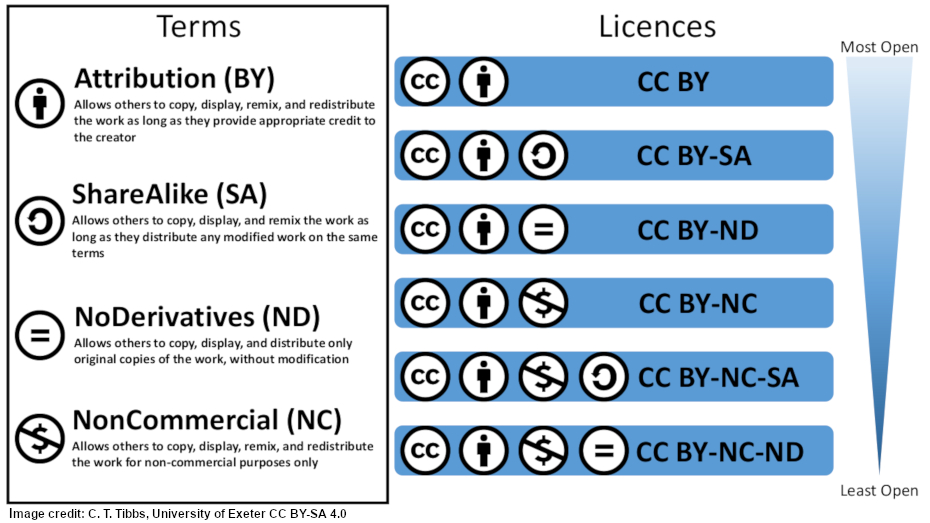Licensing data
Licensing is a crucial aspect of Open Science that defines how others can access, use, and share your research data. Properly licensing your data ensures that it can be reused in a way that aligns with your preferences while adhering to legal and ethical standards. This section explains how to choose an appropriate license for your data and why licensing is critical for transparency, collaboration, and reproducibility.
When research data are made openly accessible, licensing helps clarify the terms under which the data can be used, reused, and redistributed. Without a clear license, potential users may be uncertain about their rights to use the data, limiting its reuse and impact.
Licensing your data ensures:
Legal clarity: It defines the rights and restrictions on data use, helping to avoid legal disputes.
Open collaboration: A well-chosen license encourages collaboration by making it clear that others can freely use the data for further research, while respecting the terms you set.
Attribution: Licensing often includes provisions for crediting the original data creators, ensuring that you receive recognition for your work.
Consistency with Open Science principles: Licensing promotes transparency and accessibility, key pillars of Open Science.
Types of Data Licenses
There are several open licenses that researchers can use to make their data openly available while retaining control over how it is reused. ICArEHB recommends the use of Creative Commons (CC) licenses, which are widely recognized and easily understood.
CC0 (Public Domain Dedication) By applying a CC0 license, you waive all copyright and related rights to your data, effectively placing it in the public domain. This allows others to use, modify, and distribute the data without restriction.
CC BY (Attribution) A CC BY license allows others to use, modify, and distribute your data as long as they provide proper attribution to the original creator. This license encourages reuse while ensuring that you receive credit for your work.
CC BY-SA (Attribution-ShareAlike) CC BY-SA is similar to CC BY, but it includes a “ShareAlike” clause that requires anyone who modifies or builds upon the data to share the derivative work under the same license.
CC BY-NC (Attribution-NonCommercial) CC BY-NC allows others to use, modify, and distribute your data, but only for non-commercial purposes. Commercial reuse is prohibited unless additional permissions are granted by the data creator.
